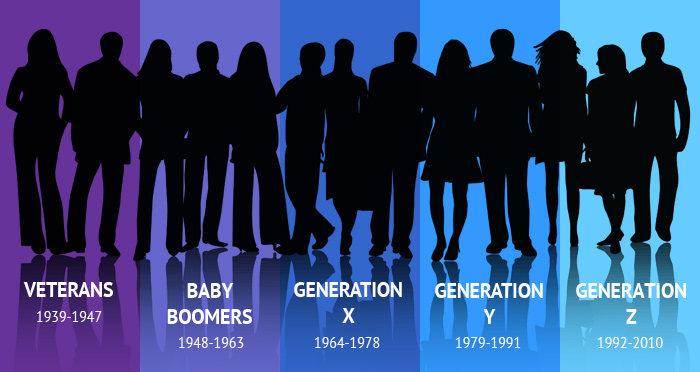Payroll
Boomers and Millennials Spend Money Very Differently
Still, younger adults are more likely to move for work or to accommodate growing families. This means, the bank says, that younger generations face more rising rent and house prices as they move around, while older generations may move less.
Jul. 24, 2023

By Elaine Silvestrini, Kiplinger Consumer News Service.
Older Americans are increasing their spending faster than younger generations, according to data from Bank of America, which suggests this can be partly attributed to the relatively generous 8.7% cost-of-living-adjustment (COLA) for Social Security beneficiaries this year.
As the bank noted, the COLA was the largest increase in 40 years for Social Security recipients.
The generational differences were reflected in data that showed overall consumer spending has been relatively stable. According to the bank, baby boomers’ spending increased 2.2% in May, while it dropped 1.5% among millennials and Gen Z.
This comes at the same time as many boomers report delaying retirement because of fears about the economy.
As BoA describes it, baby boomers (born 1946-64) and Traditionalist households (1928-45) are showing higher year-over-year growth rates in total credit card spending. Gen X, which is made up of people born between 1965 and 1977, is showing the same weaker trends as millennials and Gen Z.
The differences can pose a challenge for those seeking to talk about money across generations.
BoA found evidence of faster spending growth in households that receive Social Security payments, compared to those that don’t. Another factor, according to the bank, is younger generations are likely to face higher housing costs and the consequences of the end of the student loan repayment moratorium.
Titled “The Young and the Restless,” the report from the bank notes that housing costs are felt differently across generations, which likely contributes to the difference in spending.
The report notes that data shows that Gen Z and millennials are seeing a much higher rise in median rent and mortgage payments than older generations. This comes at a time when boomers have become the largest generation of homebuyers.
Still, younger adults are more likely to move for work or to accommodate growing families. This means, the bank says, that younger generations face more rising rent and house prices as they move around, while older generations may move less.
Another explanation the bank offered is the fact that older Americans reduced spending more during the pandemic, so some of the acceleration in spending may be a recovery from that.
Younger adults overspend because of friends
In the meantime, spending habits are becoming a source of friction among younger adults, according to a survey conducted by Qualitrics on behalf of Intuit Credit Karma.
That study showed 36% of Gen Z and millennials reporting having a friend who drives them to overspend. This is resulting in debt and sometimes ending friendships to protect finances.
The study showed 88% of millennials and 80% of Gen Z who have these overspending friends have taken on debt as a consequence of spending time with that friend. “Millennials are worse off however, with 15% admitting they’ve taken on $500 or more in debt as a result of spending time with their spendy friend, compared to just 2% of Gen Z respondents in the same boat,“ the report says.
The overspending is concentrated on dining or drinks and nights out, trips and vacations and birthday celebrations.
Credit Karma notes that the top reasons young survey respondents spend money they don’t have when they’re with these friends include not wanting to feel left out (31% of Gen Z and 32% of millennials who say they have a friend who drives them to overspend), wanting to keep up with their friend’s lifestyle (29% of Gen Z and 28% of millennials) and wanting to please their friend (29% of Gen Z and 28% of millennials). Another 28% of millennials admit they just don’t know how to say “no” to this friend.
Note: A version of this item first appeared in Kiplinger Retirement Report, our popular monthly periodical that covers key concerns of affluent older Americans who are retired or preparing for retirement. Subscribe for retirement advice that’s right on the money.
All contents copyright 2023 The Kiplinger Washington Editors, Inc. Distributed by Tribune Content Agency, LLC
